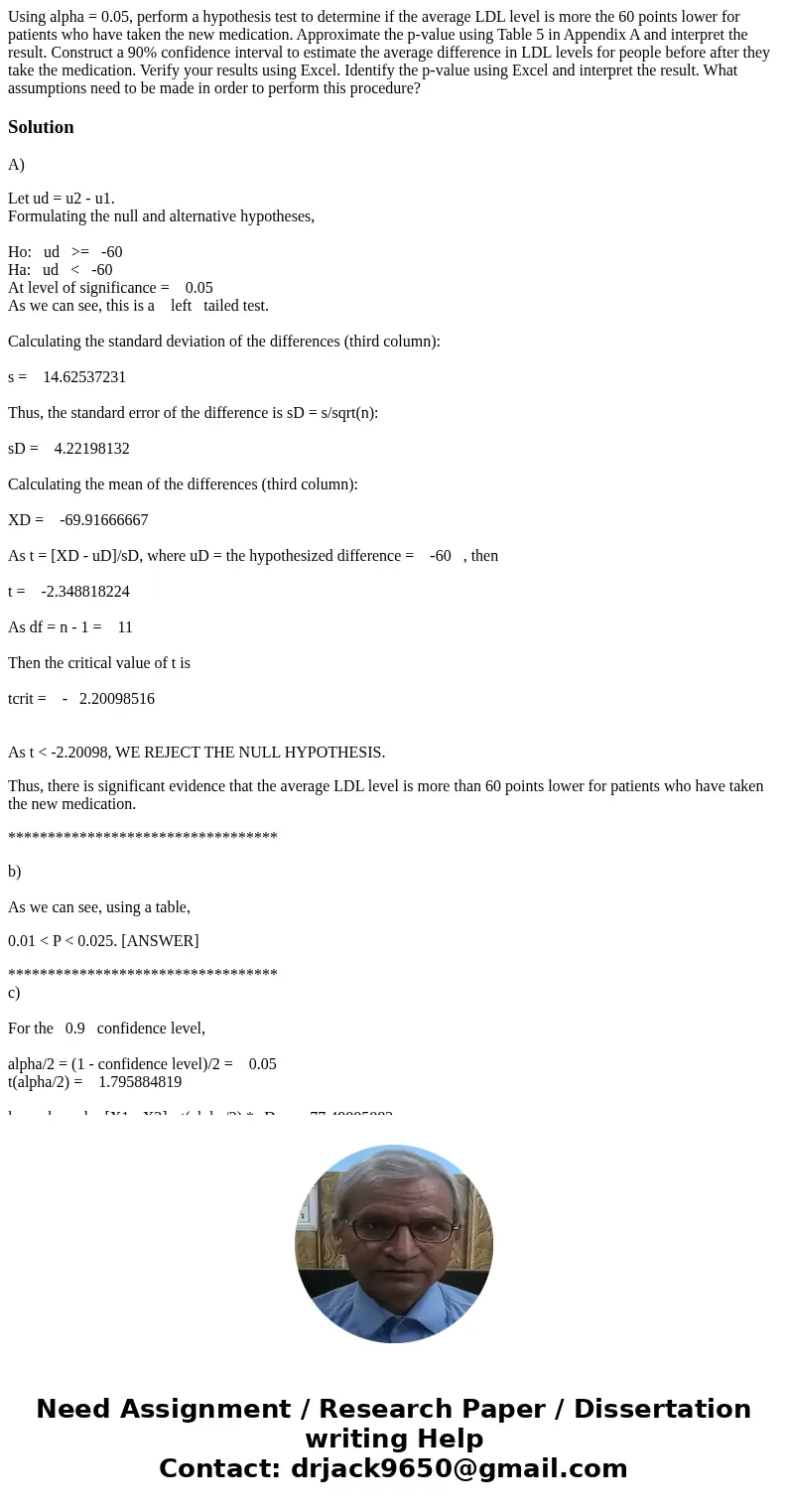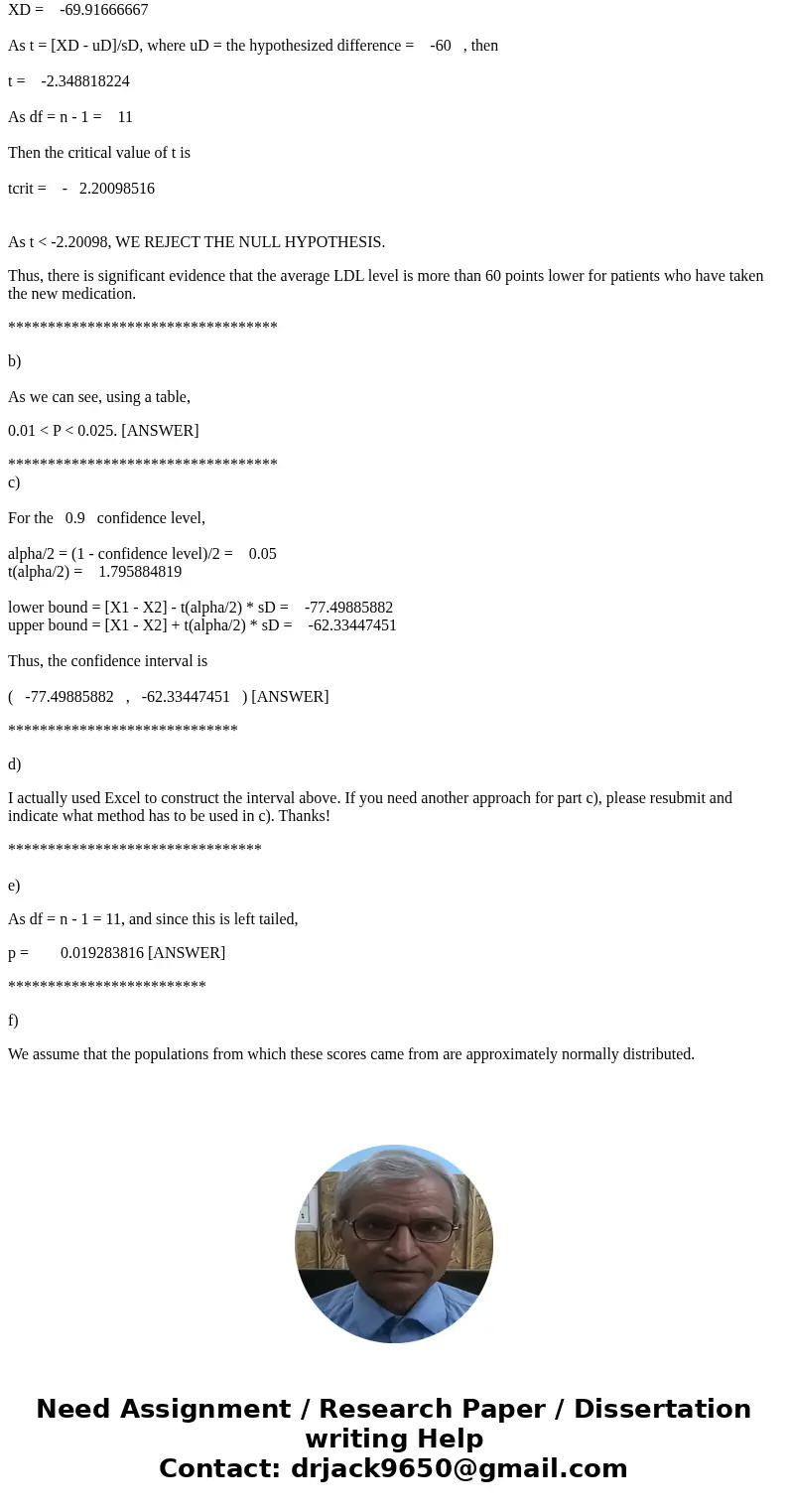Using alpha 005 perform a hypothesis test to determine if t
Solution
A)
Let ud = u2 - u1.
Formulating the null and alternative hypotheses,
Ho: ud >= -60
Ha: ud < -60
At level of significance = 0.05
As we can see, this is a left tailed test.
Calculating the standard deviation of the differences (third column):
s = 14.62537231
Thus, the standard error of the difference is sD = s/sqrt(n):
sD = 4.22198132
Calculating the mean of the differences (third column):
XD = -69.91666667
As t = [XD - uD]/sD, where uD = the hypothesized difference = -60 , then
t = -2.348818224
As df = n - 1 = 11
Then the critical value of t is
tcrit = - 2.20098516
As t < -2.20098, WE REJECT THE NULL HYPOTHESIS.
Thus, there is significant evidence that the average LDL level is more than 60 points lower for patients who have taken the new medication.
**********************************
b)
As we can see, using a table,
0.01 < P < 0.025. [ANSWER]
**********************************
c)
For the 0.9 confidence level,
alpha/2 = (1 - confidence level)/2 = 0.05
t(alpha/2) = 1.795884819
lower bound = [X1 - X2] - t(alpha/2) * sD = -77.49885882
upper bound = [X1 - X2] + t(alpha/2) * sD = -62.33447451
Thus, the confidence interval is
( -77.49885882 , -62.33447451 ) [ANSWER]
*****************************
d)
I actually used Excel to construct the interval above. If you need another approach for part c), please resubmit and indicate what method has to be used in c). Thanks!
********************************
e)
As df = n - 1 = 11, and since this is left tailed,
p = 0.019283816 [ANSWER]
*************************
f)
We assume that the populations from which these scores came from are approximately normally distributed.


 Homework Sourse
Homework Sourse